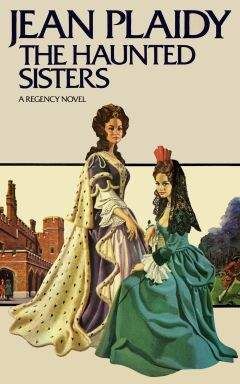“Confess,” she retaliated, “your opponent was too good for you.”
“Nay, I’ll challenge him yet and defeat him.”
“I fancy he will be judged the victor of this tourney.”
“It was my devotion to you, not his skill, that gives him that victory.”
“It is not a good enough excuse! You went in to win and you found him a better man.”
“You are vehement in your praise of him. I grow jealous of this man … Suffolk, is it?”
“Charles Brandon”—she said his name slowly, loving every syllable—“Duke of Suffolk.”
“Something of an adventurer, I have heard. Do you know he tried to marry the Archduchess Margaret? The Emperor put a stop to that little game.”
“I do not think he played that little game as well as he jousted today.”
“I will tell you a secret,” said François. “Monsieur Suffolk is not going to be declared the champion.”
“How can you be sure of that, Monsieur le Dauphin?”
“Because I must avenge this.” He touched his bandaged hand.
“How so when you cannot hold a lance? And if you could not beat him before you were injured, how can you hope to now?”
“Madame, you are too triumphant. There is a German fellow in my service. He is even taller than I; he is the strongest man in France. He is unbeatable. I am going to put him up against Monsieur Suffolk, and he’ll have the fellow out of the saddle. You will see. It will be more than a bloody hand he’ll be nursing tomorrow.”
Mary turned away. She was afraid that in seeking his revenge François would do Charles some harm.
The Queen spent a sleepless night and her restlessness awakened the King.
“What ails you, my love?” he asked.
“I am well enough,” she answered.
“Yet you do not sleep. Perhaps you are overtired. It was an exhausting day.”
“And there will be another tomorrow. Louis, I heard that a German who has never yet been beaten is going into the joust. Is it true?”
“Oh, I know the man. One of the Dauphin’s servants, a great burly fellow. I’ve seen him turn men out of their saddles as though they were sacks of corn. Yes, it is true, none can stand against him.”
“Then he is the champion of France?”
“My love, he is not of the nobility so we do not often see him joust.”
“Then he should not joust tomorrow.”
“Ha,” said Louis. “Your Englishmen are too good. We have to throw in what we have in the hope of defeating them.”
“Yet it should not be.”
“How vehement you are! I promise you, you will see good sport.”
She was betraying herself; she knew it. She must be silent. Charles will not be harmed, she assured herself. Charles is invincible. He could always have triumphed over Henry, had he tried to.
Yet she was frightened; and when she slept she dreamed of disaster. She did not know what it was; but when she awoke it seemed to be hanging over her.
François was seated with the royal party on the stage—a spectator now that he could no longer be a participant. He was all eagerness for the moment when the German should ride into the arena to challenge the Duke of Suffolk in the name of France.
François felt a little sullen. It so rarely happened that he was not the hero of such occasions. That Englishman had been too quick for him. It was true that he had been thinking of Mary, eager to shine in her eyes, tilting for show rather than with intelligence; and the Englishman had seized his opportunity and incapacitated him.
A poor showing for the Dauphin! He had disappointed everyone—his mother, his sister, the people—and most of all himself.
Mary? He could not be sure of Mary.
He looked at her, and in doing so caught Claude’s glance. She was looking affectionately maternal, trying to tell him that she did not care whether he was a champion or not; her feelings for him would not change. She herself had insisted on dressing the wound.
It was depressing to be so adored by someone who bored, to be so uncertain of another whom one longed to make one’s mistress.
Not a very auspicious day this, for François.
Mary was leaning forward in her seat. And now there was the German. What bulk! What strength! He was invincible. The Englishman would not have a chance.
The crowd was silent. It was like two giants meeting, as the pale November sunshine touched their armor when they rode toward each other.
Everyone was watching them intently, except two people on the royal stage—one of whom was the King, the other the Dauphin; and they could not take their eyes from the Queen, who sat upright, pale and tense, her hands clasped in her lap; and so absorbed was she in those two glittering figures that she was quite unaware that the eyes of both King and Dauphin were on her and that she was betraying herself.
Louis’s emotions were mixed and it was a long time since he had been deeply moved by them. Sorrow, regret and pity for her as well as for himself tormented him. So she loved the Englishman and, because she was vehement in everything she did, she could not hide that love. This was why she had changed since the English party had come to Court. It was obvious. Why had he been so blind as not to see it before?
Pictures came into his mind of their nights together. Poor child, he thought. Being vehement in love, vehement in hate, she would suffer deeply. Did she hate me? Sick old man—obscene, disgusting. And her thoughts all for that blond giant!
It was a tragedy which befell most royal people; they suffered; but they learned resignation. He remembered his first marriage, to Jeanne of France. He had been a young man then. But he could not compare the repugnance he had felt for his bride with the sufferings of Mary Tudor.
She was clenching her hands together, and had moved forward slightly, breathing quickly. My poor little one, he thought. If you stood up and shouted, I love Suffolk, you could not tell me more clearly what is in your mind. It is time I was dead.
And he had never loved her so dearly as he did at that moment.
François’s face had hardened. He too had read the secret. He was angry, for never had she seemed more desirable than she did now that he knew she was in love with another man. She had never taken his courtship seriously, but had fooled him as she had old Louis.
Beaten in the joust! Beaten in love! And possibly the Queen pregnant with the child who would oust him from the throne. Never had the Dauphin’s fortunes been so low.
“Foi de gentilhomme,” he swore, “what if she gets with child by Suffolk! Here’s a pretty state of affairs. Had it been my own son who robbed me of my rights, that would have been one thing—but that it should be an English bastard!”
Louis, the old fool, drooling over a beautiful girl, must be made to understand the significance of the danger which threatened.
In the meantime Suffolk must be defeated in the arena.
But it was not to be so. Suffolk was inspired. Never had he jousted in all his life as he did in the Park of Les Tournelles, and even the most partial of judges must declare him the victor.
The Queen had risen; she clasped her hands with joy. She could not wait to greet the champion; and all the time she was watched by the sad eyes of the King, the lowering ones of the Dauphin.
François was in the King’s apartment and they were alone together.
The Dauphin was decidedly uneasy and Louis made a shrewd guess as to why he had come to him. It was not easy to hint—for he would not dare say outright—what was in his mind; yet he had to convey to Louis the dangers of this delicate situation.
“And the hand?” asked the King.
“Almost healed, Sire.”
“You have healthy blood.”
“It was unfortunate that it happened so early in the joust, Sire. I regret losing the pleasure of unseating the Englishman.”
“Ah, my big François, he was too good for us, let us admit it.”
“The English method, Sire, is less polished than our own.”
“And more effective.”
François hesitated and then said: “The English—and in particular the Duke of Suffolk—seem to be highly favored at our Court.”
“It is necessary to entertain our guests.”
“True, Sire. Yet methinks there are some members of the Court who would be glad to see the English return to their own land.”
“The Queen delights to entertain her countrymen.”
“She has had many opportunities of doing so, Sire.”
That was as far as he dared go. He was right of course, mused Louis. The fellow should not be allowed to come and go as he wished. It was putting too great a temptation in the way of the Queen. He did not wish for trouble.
“The Court will be moving soon to St. Germain,” said Louis quietly. “We shall not expect the English to accompany us there.”
Poor child, he was thinking. But it is better so.
Charles had left for England and there had been no opportunity for a private interview. Mary was desolate, and desperately tried to hide this.
When shall I see my Charles again? she asked herself, and could provide no satisfactory answer.
The Dauphin seemed secretly amused; he had renewed his attentions which, she remembered then, had ceased for a while. Charles was going home covered in glory. Henry would be pleased with him. She pictured them together talking of her.
What would I not give to be sitting in Greenwich Palace between them as I used to!
The King came to her and put her lute into her hands.
“Play for me,” he said. “I am in the mood for sweet music.”
So she played the songs she had played for Henry, and the King, watching her, shared her melancholy. Her golden curls were held from her face by a band set with pearls, but they fell over her shoulders; her gown of violet velvet was cut away in the front to show a petticoat of amber satin which was decorated with a gold fringe, and about her white throat was a necklace of pearls.
This was folly, thought the King. She must forget England and her Englishman. She is the Queen of France now—a proud destiny which should be enough to satisfy anyone. If they could beget a child she would be contented.
A child? Why not? He was not so very old, and on his good days he felt almost young again.
He loved her; he did not see why they should not live together in amity. If there was a little dauphin she would care for the boy so much that she might come to love his father.
He came to her and laid a hand on her shoulder. The lute was silent.
“It does me good to watch you,” he said. “I feel young again.”
She tried to repress the shiver which ran through her, and almost succeeded.
He pitied her but told himself he must harden his heart. She was his wife; he had given her the crown of France; and in exchange she must give him a dauphin.
Louis refused to accept age. At St. Germain he hunted with his old enthusiasm. The Queen rode out with him, and he was at her side during the banquets. He partook of the rich dishes, forsook his boiled meat; and even tried a measure now and then; and when he retired with the Queen he assured himself that having a young wife had made him young again.
Gone was the old man of France.
He knew that the Dauphin with his mother and sister looked on sourly; inwardly he laughed at their discomfiture.
The most beautiful girl at the Court was his Queen, and he was man enough to rejoice in her.
The Court had returned to the Palais des Tournelles in order to celebrate Christmas and the New Year.
The Queen was feverishly gay. If the King wanted to prove that he was not an old man, let him. He must join her in the revels; and she would show them how Christmas and the New Year was celebrated at her brother’s Court.
The weather had turned bitterly cold; deep snow was in the streets and biting winds swept through the Palace. The Queen did not seem to be affected by the weather. Her mood became more hilariously gay as the days passed.
This is how she was meant to be, Louis told himself. She is getting over her infatuation with the Englishman. She is ready to enjoy her new status; it is a glorious thing to be Queen of France even if one must take the old man with it.
When she was with him Louis strove to be gay; he was constantly attempting to prove that he had regained his health and strength. He wanted to make that sly speculation on the face of the Dauphin a certainty. He wanted to send Louise’s hopes diving down to disaster. He was using all the means he could lay his hands on to give his old body a semblance of youth.
He opened the Christmas revels with the Queen beside him; he danced with her; he supped with her, and it was his wit which provoked her to laughter.
As for her, she seemed inexhaustible; it was as though she danced a wild dance and bewitched the King into sharing it with her.
On New Year’s Eve her gaiety seemed to reach its climax. The King never left her side.
When she rose to dance she held out her arms to him and François watching with his mother and sister had never felt his hopes so low.
“She is a witch,” hissed Louise. “She has breathed new life into him. He looks ten years younger than he did before his marriage. He was never so besotted with Anne as he is with this one, and Anne could lead him by the nose.”
“Oh, Mother,” sighed Marguerite, “who would have thought it would have come to this? Each night she is in his bed. There can be one outcome.”
“All our hopes … all our plans …,” moaned Louise.
“And at that time,” muttered François, “when the crown seemed about to be placed on my head!”
The trinity was in despair.
The Queen was aware of this. Mischief would lighten her eyes every time she met one of the family. Yet behind her gaiety there was a certain brooding, a watchfulness.
The heat of the ballroom had been excessive; outside the temperature was at freezing point.
They had danced and retired late to their apartments; the Queen lay in her royal bed, rejoicing. There could be no love-making tonight. He was too ill. He could not pretend to her as glibly as he did to others.
She had comforted him. “My poor Louis, you are so tired. You shall sleep. I shall be close to you … thus … and when you have rested you will feel well again.”
She bent over him and, looking up into her round young face, he longed to caress her; but she was right, he was too tired.
So he lay still and she lay beside him, keeping her fingers laced in his.
And she thought: It cannot be long now. Something tells me.
She was sorry and yet exulting. She wanted to throw herself into his arms and ask his pardon. She wanted to say: I wish you dead, Louis, and I hate myself for wishing it; but I cannot stop this wish.
It was long before she slept. She kept thinking of the heated ballroom, and she fancied she could still hear the sound of music mingling with the howling wind outside. Faces flashed in and out of her mind. François, lean and hungry … hungry for her body, half loving her, half hating her, since the tournament in which Charles had beaten him. Louise, alert and fearful, those glances which covered the whole of her body, speculatively fearful; and Marguerite so anxious that her brother’s way to the throne should not be blocked. The King … whose spirit yearned toward a greater amorousness than his body would allow.





